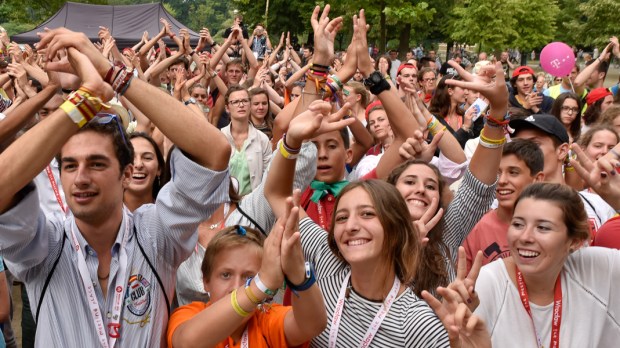A new Pew Research study has found that in the United States, young adults are 17% less likely to identify with a religious group than older adults. While the study, which was conducted in 106 countries over the last decade, found a similar pattern happening elsewhere in the world, it also revealed that the phenomenon is far from universal.
While younger adults were less likely to identify with a religion than older ones in 41 out of 106 countries, in many places, the gap between the two age groups was relatively small. In fact, the average difference between young and older adults in all countries surveyed was only 5 percentage points.
Where is the biggest gap between young and old adults?
The countries with the biggest gaps between young and older adults in terms of religious affiliation are in Europe and the Americas:
* In the U.S. 17% fewer adults under 40 identify with a religious group than do their elders.
* In Canada the gap between younger and older adults is 28%.
* Denmark has the largest gap (26%) among European countries surveyed.
*Uruguay (18%), the Dominican Republic (17%), and Chile (13%) have the biggest gaps in Latin America.
In Latin America and the Caribbean there is a 14% gap; there is a 12% gap in the Middle East and North Africa; a 10% gap in Asia-Pacific; and a 3% gap in Sub-Saharan Africa.
Where are young people just as religious as their elders?
In two countries, Chad and Ghana, young people are actually more likely to identify with a religion than are older people.
In 63 countries, there is no difference in religiosity between younger and older adults. These include the following predominately Christian countries: Armenia, Belarus, Bosnia-Herzegovina, Botswana, Bulgaria, Cameroon, Colombia, Croatia, Democratic Republic of the Congo, Ethiopia, Georgia, Greece, Guatemala, Honduras, Hungary, Kenya, Liberia, Moldova, Mozambique, Nigeria, Paraguay, Peru, the Philippines, Romania, Rwanda, Serbia, South Africa, Tanzania, Uganda, Ukraine and Zambia.
Predominately Muslim countries where there is no gap between younger and older adults include Afghanistan, Albania, Algeria, Azerbaijan, Bangladesh, Burkina Faso, Djibouti, Egypt, Guinea-Bissau, Indonesia, Iran, Iraq, Jordan, Kazakhstan, Kosovo, Kyrgyzstan, Lebanon, Malaysia, Mali, Morocco, Niger, Pakistan, Palestinian territories, Senegal, Tajikistan, Tunisia, Turkey and Uzbekistan.
The study found that these results don’t necessarily mean that the world is getting less religious. The countries which are most religious tend to grow the fastest. In Niger, for example, where 86% of those surveyed said religion is very important in their lives, the population is expected to quadruple between 2015 and 2060. On the flip side, in Japan where only 10% said religion was very important, the population is expected to shrink by 20% in that time.

